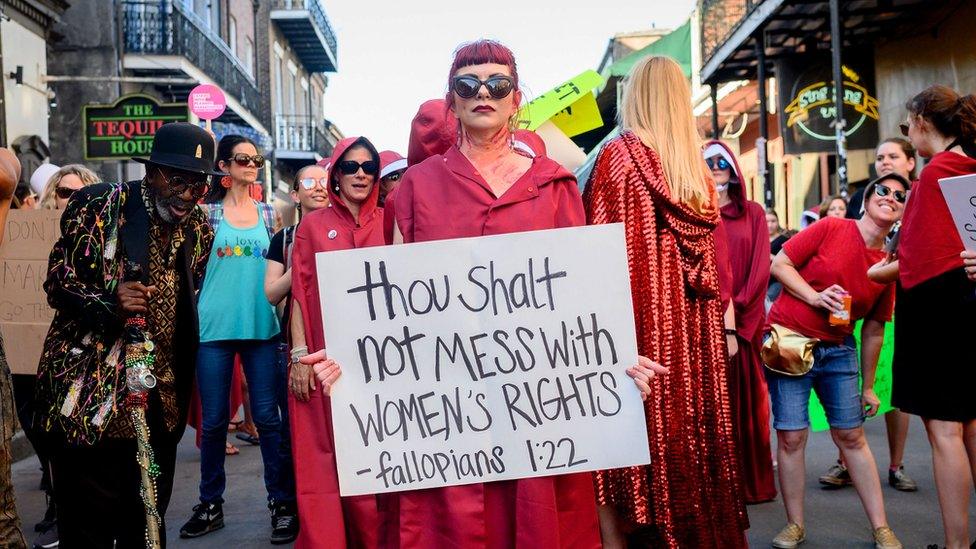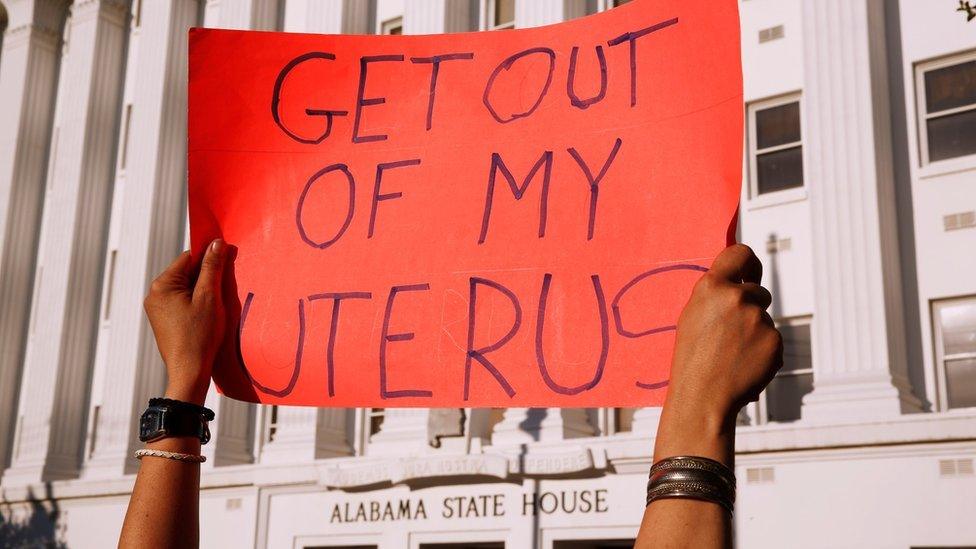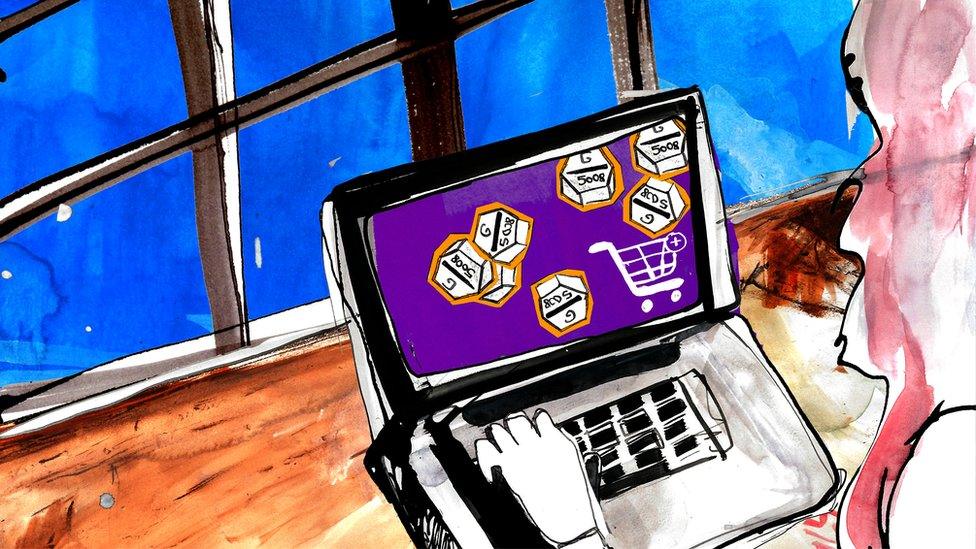Louisiana passes law banning abortions after heartbeat is detected
- Published
The abortion battle explained in three minutes
Louisiana's Democratic governor has signed a highly restrictive new abortion law that bans the procedure after a foetal heartbeat is detected.
The law could prohibit abortions as early as six weeks into pregnancy.
State legislators overwhelmingly backed the bill on Wednesday, by 79 votes to 23 and Governor John Bel Edwards signed the bill into law on Thursday.
It is the latest in a raft of anti-abortion measures which are expected to face legal challenges.
Four other states have passed similar limits to abortion this year.
In a statement, Governor Edwards said: "I call on the overwhelming bipartisan majority of legislators who voted for [the law] to join me in continuing to build a better Louisiana that cares for the least among us and provides more opportunity for everyone."
He did not hold a signing ceremony.
Governor Edwards has long opposed abortion. Support for abortion restrictions has put some state Democrats at odds with the national party, which views access to the procedure as a core plank of its platform.
Dina had to give birth to her rapist's child - under Alabama's abortion ban women would have no choice.
Women throughout the US have staged protests against the Lousiana legislation, and major Hollywood stars and production companies have vowed to boycott states that implement such bans.
Disney, Netflix and WarnerMedia have all publicly threatened to rethink production in these states if the laws take effect.
What are heartbeat laws?
So-called heartbeat laws seek to make abortion illegal as soon as a foetal heartbeat is detectable. In most cases, this is at the six-week mark of a pregnancy - before many women even know they are pregnant.
Although Louisiana's stringent law does allow abortions in cases where the pregnant woman's life is in danger, it does not include exemptions for pregnancies resulting from incest or rape.

The new push to limit or ban abortion has sparked outrage
But the law will only come into force if a federal court upholds a similar ban passed in neighbouring Mississippi. A judge temporarily blocked the Mississippi law when it was passed.
US President Donald Trump has appointed two conservative judges to the Supreme Court since taking office, and analysts say conservatives across the US see this as the moment to challenge the 1973 Roe vs Wade ruling - which granted women the right to choose whether or not to have an abortion.
Explaining Roe v Wade and abortion in US
Which states have passed restrictions?
Louisiana is the fifth state to pass a heartbeat law, after Georgia, Kentucky, Ohio and Mississippi.
The US Supreme Court earlier this year narrowly blocked new abortion restrictions in Louisiana, which would have required doctors who provide abortion services to be certified to practise at a nearby hospital - which critics say would have limited the right to abortion and would cause two of the state's abortion clinics to close.
Meanwhile, Alabama has passed an outright ban on the procedure in nearly all cases. None of these laws are yet to take effect, however.
US President Donald Trump has said he is against abortion except where the pregnancy endangers the mother's life, or results from rape or incest.
Allow X content?
This article contains content provided by X. We ask for your permission before anything is loaded, as they may be using cookies and other technologies. You may want to read X’s cookie policy, external and privacy policy, external before accepting. To view this content choose ‘accept and continue’.

- Published15 May 2019

- Published28 October 2018

- Published8 February 2019
- Published30 May 2019

- Published12 May 2019
